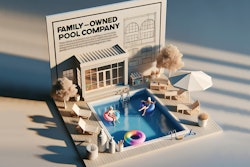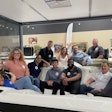Salespeople are motivated to earn commissions. When they enter a sales situation, they naturally think of money, and they think the customer is thinking of money, too. Unfortunately, this money mind-set often causes the salesperson to drop prices just to make a sale, even when he or she doesn't really need to.
When people buy things, they aren't necessarily making their purchases based on price, especially when making a decision on something they really care about. For example, a consumer may not care where his next toothbrush comes from, because he just needs something to keep his teeth clean for the next couple of months. But a person shopping for an MP3 player, an infant car seat, or a hot tub might research several products before making the decision to buy one over the other. Often, things like safety or reliability trump price during these buying decisions.
Customers are looking at many factors besides money and wondering, "What additional value can I get out of this product?" "How does this relate to other things I'm currently doing?" "How quickly can I get it?" "How easy is the vendor to work with?" While price may play a part in the decision to buy, your reputation as a company and the value you add are often more important. So dropping price in a sales situation — before investigating customers' true issues — isn't always the best decision a salesperson can make. Rather, the salesperson needs to discover the customer's real hot button. When you fail to find out what makes your product or service special for that client, then you'll never be able to satisfy the customer's requirement.
If your salespeople are dropping the price just to get the sale, then you need to differentiate yourself from your competition beyond price. When you aren't focused on delivering just a competitive price, your customers won't view price as an issue either. So rather than focus on what a person will or will not pay for your product or service, you must focus on making a difference. That's what sets you apart.
You can use the following strategies to differentiate your product or service beyond price and avoid becoming just another commodity.
A CULTURE OF CREATIVITY
Differentiating your product or service beyond everyone else's allows you to see many things about who you are and what you deliver. For example, if people look to you as a source of trust and you drop your price, how can people really trust what you're providing? But when you focus on the benefits of working with you, you remove price as the deciding factor. You begin to appeal to the person's real needs and wants. But you have to find out what those are first.
To avoid becoming a commodity, you must engage both your sales and marketing people in making the differentiation. If you ask salespeople to do what they've always done, then they'll probably go out and drop the price. But if you ask them to participate in distinguishing your product or service, then you'll have a better chance of discovering your true differentiation. After all, your salespeople are in touch with the customers the most and really know what they want.
Encourage your sales and marketing teams to share their ideas, crazy as they may be, and reward people for bringing new ideas to the table. This open, reward-based environment will bring out lots of ideas from the ridiculous to the sublime, but eventually you'll have lots of good ideas that will help distinguish you.
At first, you should reward every idea to encourage your team to talk about everything that comes to mind. Then as time goes on and your brainstorming sessions become more focused, you can be more selective about the ideas you reward. Encourage them to get closer and closer to your true differentiation.
Keep in mind that by creating this kind of environment you're asking your team to take on new and difficult challenges that require them to think in a different way. Essentially, you're asking them to make mistakes. But if you're asking them to brainstorm, you have to let that creativity come through. So set up an environment where their ideas can flow freely.
DOING YOUR BEST
You probably offer more than one product or service in your company. If not, you've most likely considered expanding into new markets. But when companies start expanding into new markets, they tend to deliver things marginally.
For example, everything Gore-Tex does revolves around its core technology. It's used to create a variety of waterproof fabrics that are used by various apparel and equipment manufacturers. But if they decided to expand into something completely different, such as spas and pools, then they would have a harder time succeeding at it. If you try to expand beyond your area of expertise, chances are you won't be able to compete with anything other than price.
On the other hand, if the people at Gore-Tex decided to expand in other areas of the fabric industry, they might have more success. If you expand into something you can incorporate into the essence of what you do best, then you'll be able to distinguish your product or service on something other than price.
If your company only marginally delivers a particular product or service, you may want to consider leaving these things behind. They are the products and services that become price driven. You should stick to the core of what you do; otherwise you are out of your niche market. Then you lose money and have to sell at rock-bottom prices. When that happens, your clients won't be happy, and you won't be happy either.
DOING WHAT YOU LOVE
Doing what you love means delivering something intangible beyond the product or service. Your love for what you do shines through to your customers and prospects. You are pleasant to work with and you pay attention to details; therefore your service has more value and your clients will be willing to pay more for it.
Try to do only the things that bring you happiness. If you deliver anything less than that, then your clients and prospects will reduce your value down to the lowest common denominator. When you don't love what you're doing, people can't rationalize paying more for it.
FUTURE DIFFERENTIATION
Salespeople often think of cutting prices to win business, when in most cases, lowering price should not be the first card they play. While price is important, people also consider a number of other factors in their high-ticket buying decisions. Therefore, you must differentiate your products and services so you can address the real needs and wants of your customers.







































